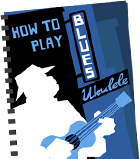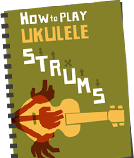When I first ran across Jessica Graves’s YouTube channel her lusty vocals immediately brought to mind Christina Marrs of the Asylum Street Spankers (she also has a hint of Neko Case at times). What I didn’t know was that she was one of the original members of Shorty Long together with a number of former Spankers (including Pops Bayless) and she provided the vocals for their superior version of I Want To Marry A Lighthouse Keeper.
After taking time out of the music biz (to follow a career signing for the deaf), she’s recently hooked up with Bayless again and recorded an EP Jammin’ At Jackson’s. She sent me the tracks and I was completely knocked out by them. The musicianship on it is fantastic. But they’re obviously laid-back and enjoying making music together. It’s my favourite record of the year so far. Yes, it’s better than Blood Bank. Yes, it’s better than Horehound. Yes, it’s even better than Brooke Hogan’s The Redemption.
How did you first get together with Pops and the rest of the guys?
I met Pops at a jam on the porch of Flipnotics, a coffee shop in Austin, TX. It was in August of 1999. I had just pulled my great-grandmother’s ukulele out of the closet, re-strung it, and learned a single tune. If memory serves, it was “Dream a Little Dream of Me.” That one song Pops was gracious enough to lend me his ukulele to play at the jam that afternoon. When I told him that was the only song I knew, he offered me lessons. When I showed up for my first lesson, two young men from Philly were already socializing in Pops’ living room. I never got a lesson. We jammed, and that was the beginning of Shorty Long.
What brought you back together to make this record?
The only one on this record from Shorty Long other than me is Pops Bayless. He’s the guy who made it possible for that recording to happen. He lined me up with Rob Jewett, and I brought in Jimmie Dreams and Evan Kolvoord. Having players of that caliber performing my tunes is quite possibly the greatest thrill of my life. Evan’s harp has more finesse than most men’s lips can muster to merely speak, much less make a harmonica sound like that. Rob Jewett has prestige oozing out his finest pores. Jimmie Dreams’ stylings cannot be matched. Pops was the one keeping us all on track, and let us not forget that he plucked out some mean ukulele solos.
The record sounds very organic and relaxed. How was it recorded?
The five of us met up at 10:00pm at a fine little house in South Austin, TX. By 10:30pm, we were all situated around a single microphone. We had knocked out all five songs by 1:30am. These four players had never all been in the same room together, much less had they played these tunes together. I tossed charts on the floor next to the microphone stand, called out the starts and stops, and it didn’t take us more than three full takes per song to turn out those five tracks. It’s such a great pleasure, working with professionals.
Are all the songs on the album your own? They feel like songs that have been around for decades. Who influences your songwriting?
I wrote all five of those tunes. You are not the first person to say that they sound familiar. One of my best friends and fellow song writer, whom I greatly admire, balked when I told her I’d written Finally Mine. She thought it was 80 years old. I guess that’s what happens when your family brings you up on live music, and you never listen to pop radio. My parents didn’t take me to church on Sundays, but we’d go every Wednesday to Sittin’ Singin’ & Supper at Threadgills, every Monday to Bummer Night at Artz Rib House. The songs that informed and inspired my life were songs by people I’d grown up listening to and loving. Most of the world outside of Texas has never heard of Uncle Walt’s Band, The Flatlanders, or Toni Price, but they’re among the greatest of my heroes. We would drive an hour out of town to see a show at Gruene Hall, we were such dedicated fans.
I’m fascinated by sign language interpretations of songs. How do you go about conveying the mood of music in a purely visual way?
It requires intense study, and a lot of creativity, not to mention fluency and finesse with both languages. English and American Sign Language have vastly different rhythms, so matching up concepts to beats can be pretty tricky. What English uses many words to say may be expressed in ASL with a single sign, and vice versa, which makes it doubly difficult. There are few who do it truly well. I can give you a fantastic example by Tiffany Hill. A song that made me want to turn off the radio any time I heard it, she transformed into a touching, vital, heart-breaking miracle.
What have you got planned next? Are you back in the music game for good?
In December, I’m moving back to Austin. I’ve been in Washington, DC for seven years now, and as much as I love it here, I have some great musician friends back in Austin with whom I’d like to be playing all the time. I’m in a group of songwriters who meet every week, but participating remotely just isn’t as satisfying. I held a fundraiser that started a ukulele choir at an Austin elementary school, and I want to participate in their first year. I have my own band I’d like to start, plus a side project in mind—an all female band I call the Songbirds of Prey. In short, the answer to your question is that I have an awful lot planned, and you can bet your sweet bippie I’m in it for good. And thanks for asking.
Visit her website. Buy Jammin’ At Jacksons on CDBaby



Sorry, Comments Are Broken Right Now
You must be logged in to post a comment.